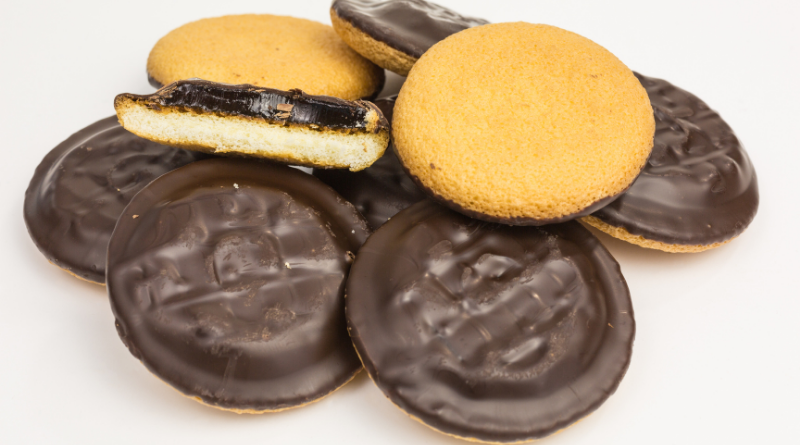The “Jaffa Cake” case!
It’s my personal opinion that you should never assume anything with VAT. Many of you are probably thinking now of the “Jaffa Cake” case – is it a cake or a biscuit? It’s sold in the biscuit aisle, can be eaten like a biscuit and advertised the same way as other biscuits. But it has the same ingredients as a traditional sponge cake and goes hard when it goes stale unlike a biscuit which goes soft.
In the UK, value-added tax is payable on chocolate-covered biscuits – but not chocolate-covered cakes. McVitie’s classified Jaffa Cakes as cakes, which HM Revenue & Customs (“HMRC”) accepted but always had misgivings.
In 1988 the statutory definition of confectionery (which is subject to VAT) was changed to include items of sweetened prepared food normally eaten with the fingers. HMRC undertook a review and reversed its viewpoint ruling that Jaffa cakes were actually biscuits partly covered in chocolate and so subject to VAT.
In 1991 McVitie’s appealed and headed off to a VAT tribunal.
The tribunal assessed the following:
- The product’s name was regarded as a minor consideration.
- The ingredients were regarded as similar to those of a cake, producing a thin cake-like mixture rather than the thick dough of a biscuit.
- The product’s texture was regarded as being that of a sponge cake.
- The product hardens when stale, in the manner of a cake.
- A substantial part of the Jaffa cake, in terms of bulk and texture, is sponge.
- In size, the Jaffa cake is more like a biscuit than a cake.
- The product was generally displayed for sale alongside other biscuits, rather than with cakes.
- The product is presented as a snack and eaten with the fingers, like a biscuit, rather than with a fork as a cake might be. The tribunal also considered that children would eat them in “a few mouthfuls”, in the manner of a sweet.
The court found in favour of McVitie’s and stated that, legally, Jaffa Cakes are considered a cake, which means that McVitie’s doesn’t have to pay VAT on Jaffa Cakes in the UK.
This all happened back in the early nineties but 30 years on we have the issue with confectionery bars!
In accordance with the 1988 statutory definition of confectionery, cereal bars held together with syrup are subject to VAT. However, Wm Morrison Supermarkets have recently argued that this definition does not apply to Nakd Wholefood bars whose main ingredient, dates, was already sweet and not sweetened by other ingredients or natural flavourings. The tax tribunal still decided that the cereal bars were still confectionery, the ingredients had been processed, packaged as a treat snack and finally marketed as treats.
So, I’ll leave you until next time pondering how VAT can be so tricky, and with the other thought, can a pineapple flavoured Jaffa cake still be called a Jaffa cake? I thought Jaffa = orange!
The low down on Jaffa Cakes
Jaffa Cakes are biscuit-sized cakes introduced by McVitie and Price in the UK in 1927 and named after Jaffa oranges. The most common form of Jaffa cakes are circular, 21⁄8 inches (54 mm) in diameter and have three layers: a Genoise sponge base, a layer of orange flavoured jam and a coating of chocolate. Each cake is 46 calories. Jaffa cakes are also available as bars or in small packs, and in larger and smaller sizes. The original Jaffa Cakes now come in packs of 10, 20, 30, or 40, having been downsized in 2017 from 12 or 24 per pack.
Because McVitie’s did not register the name “Jaffa Cakes” as a trademark, other biscuit manufacturers and supermarkets have made similar products under the same name.
McVitie’s entire line of Jaffa cakes are produced in the United Kingdom at the McVitie’s factory in Stockport. The Jaffa cake production area covers an acre (4,000m2) and includes a production line over a mile (1.6 km) long which sits on the Stockport side of the site’s boundary with Manchester.
Because of the nature of the product – having multiple components of cake, chocolate covering and jam – special hardware accelerators were devised to allow rapid computer inspection of 20 products per second, taking place under four symmetrically placed lights.
Although Jaffa cakes are usually orange flavour, limited edition flavours have been available, such as lemon-and-lime, strawberry and blackcurrant. McVities launched limited-edition pineapple flavour Jaffa cakes in early 2020. In early 2021 McVitie’s unveiled the new flavours cherry and passionfruit.
During an advert first shown on TV on 26th February 2021, McVities reignited the debate of whether Jaffa Cakes were cakes or biscuits. The advert shows a man debating whether it is a cake or a biscuit and then coming to the conclusion that he can be anything he wants to be. Watch it below.
Source: Wikipedia
Originally posted 2021-08-20 12:49:02.
- The low down on tax and electric vehicles - February 5, 2026
- The “Jaffa Cake” case! - December 27, 2025
- How a virtual financial director can boost your business growth - August 27, 2025






